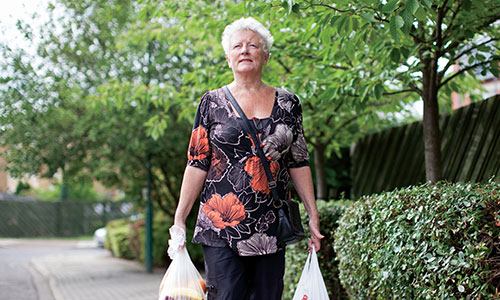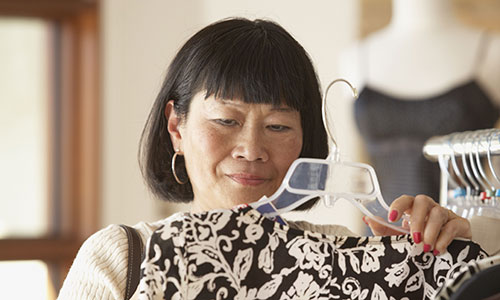Cash use and its acceptance by businesses and public services has been in decline for years, with these trends accelerated by the arrival of the COVID-19 pandemic. But cash remains critically important to older people, as Age UK's new report highlights.
Age UK has heard many times over the past 15 months about the issues older people have faced in managing their money. We’ve heard about the impact of the pandemic on accessing cash and face-to-face banking services. Our new Behind the Headlines report has brought together older people’s experiences since the start of the pandemic, using these stories to show the need to protect the cash system. Further loss of cash in our communities will likely drive more people online, further undermining high streets, villages and town centres trying to recover after a year of lockdowns.
Using cash during the pandemic
The following is an anonymised message from the Age UK Advice Line:
“Rural areas will have problems getting money during the crisis, as our bank is more than 10 miles away and if we cannot use public transport, we cannot get there. I also won’t be able to get out if the chiropodist can’t call on me. The Government [doesn't] need to worry about me getting out, as l will not be able to walk with my condition – l have a chronic foot condition and struggle to walk. We have a daughter who lives with us and I transferred cash for her to shop on our behalf – but others have no one. Please help those who cannot help themselves.”
While cash use has declined, a YouGov survey in January found more than half – equivalent to nearly 6.3 million – of older people (65+) in Great Britain had used cash within the last week, despite the UK being in a national lockdown and with many older people shielding at home. Meanwhile, nearly three-quarters – equivalent to around 8.8 million – of people aged 65+ and almost two-thirds – equivalent to around 25 million – of adults under 65 in Great Britain had used cash at some point in the past month.
Cash use has been falling for many years, which is one of the reasons why it is becoming harder to get hold of. Between 2017-2020, the number of free-to-use cash machines across the UK fell by almost a quarter. People need free access to cash where they live and shop as those with limited mobility or who lack transport will struggle with travelling greater distances.
Speaking to older people
Many older people still rely heavily on cash, with some being completely dependent. Being cut off from cash and banking services is therefore tantamount to being excluded from society, so maintaining access is vital.
Age UK runs a Policy Sounding Board, an engagement forum for older people to speak about issues that matter to them. Members of the board discussed issues around cash and saw the pound as part of their identity, a constant symbol of a shared history. Despite this, protecting access to cash was not considered an issue of nostalgia but about retaining choice and independence over how they spent their money.
Comments from Age UK's Policy Sounding Board
“[We're part of a] generation where counting your cash and divvying it up for different things is very much how many still manage their money.”
“[My] weekly wage used to be paid in a pay packet, I leave things to my wife [now] – she does online banking, but I know nothing about it.”
“People that are more vulnerable lose confidence if they cannot stay in control. Need to do all we can to help people manage their money either electronically or physically.”
The vast majority of older people are perfectly happy and able to manage their money, they just need help with accessing it in the way that is most convenient. Being forced to rely on others, if that is a safe option for them at all, could make someone more vulnerable and dependent when all they needed was support with accessing their money in the method they have used throughout their lives.
The solutions
The Government is committed to ‘levelling up’ communities and ‘building back better’ after the pandemic. Age UK believes that this must include ensuring everyone has access to cash in the same way we can all expect universal access to water, electricity, post, and broadband services – a recognition of how essential all are to our daily lives.
The Government has also announced that they will open a consultation this summer on new legislation that will “protect people’s ability to access the notes and coins they need for their daily lives… setting out proposals for establishing requirements that ensure people and businesses can access cash withdrawal and depositing facilities, over time, within reasonable travel distances.”
Age UK is committed to working with the Government, the banking industry, and consumer groups to take the necessary action to protect access and acceptance of cash. We will be working with key decision-makers over the next six months as part of the Access to Cash Action Group and continue to fight for the older people who rely on cash and need us the most.
Behind the Headlines: Short-changed
Lean more about how the decline of cash is affecting older people.




